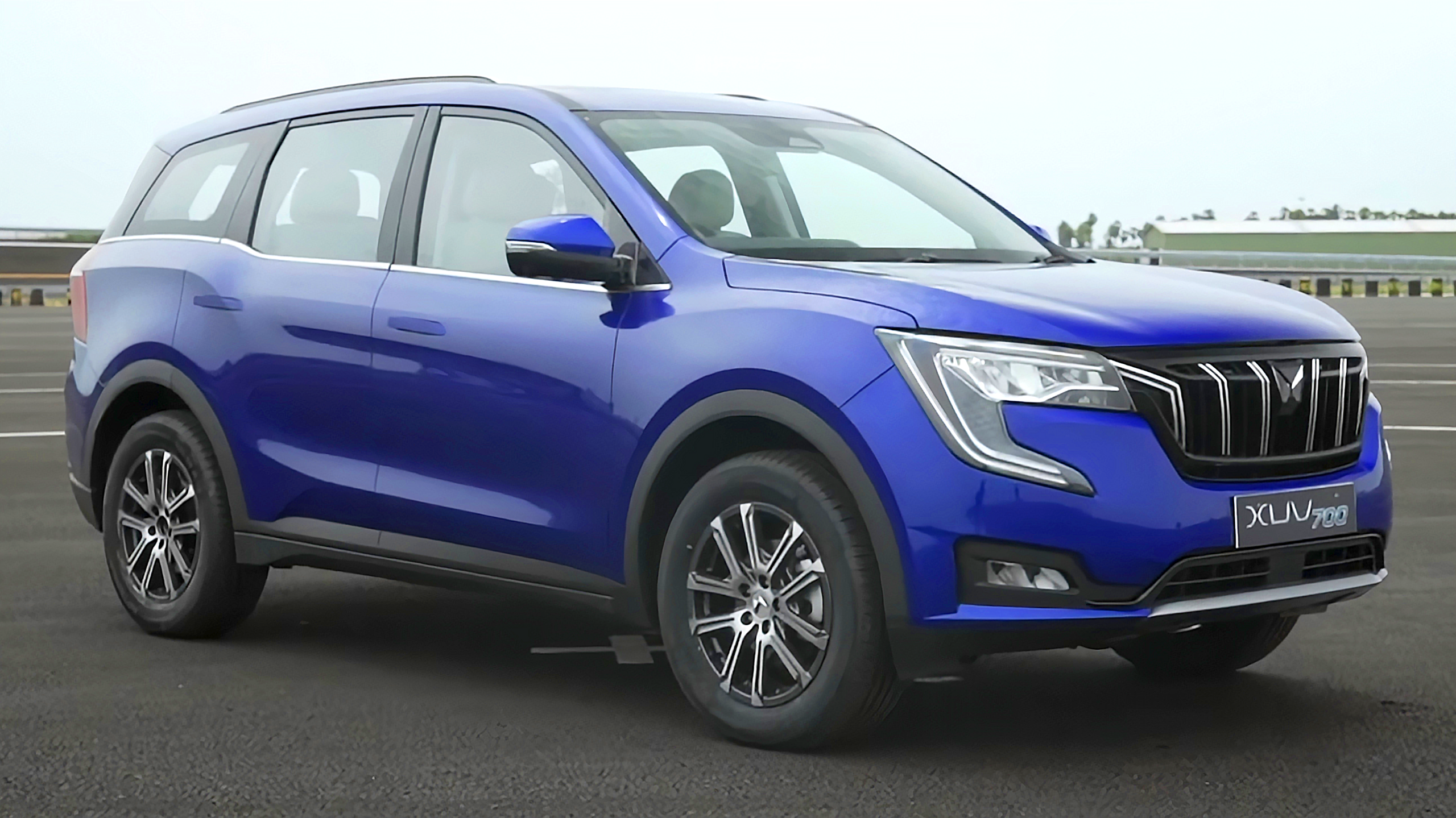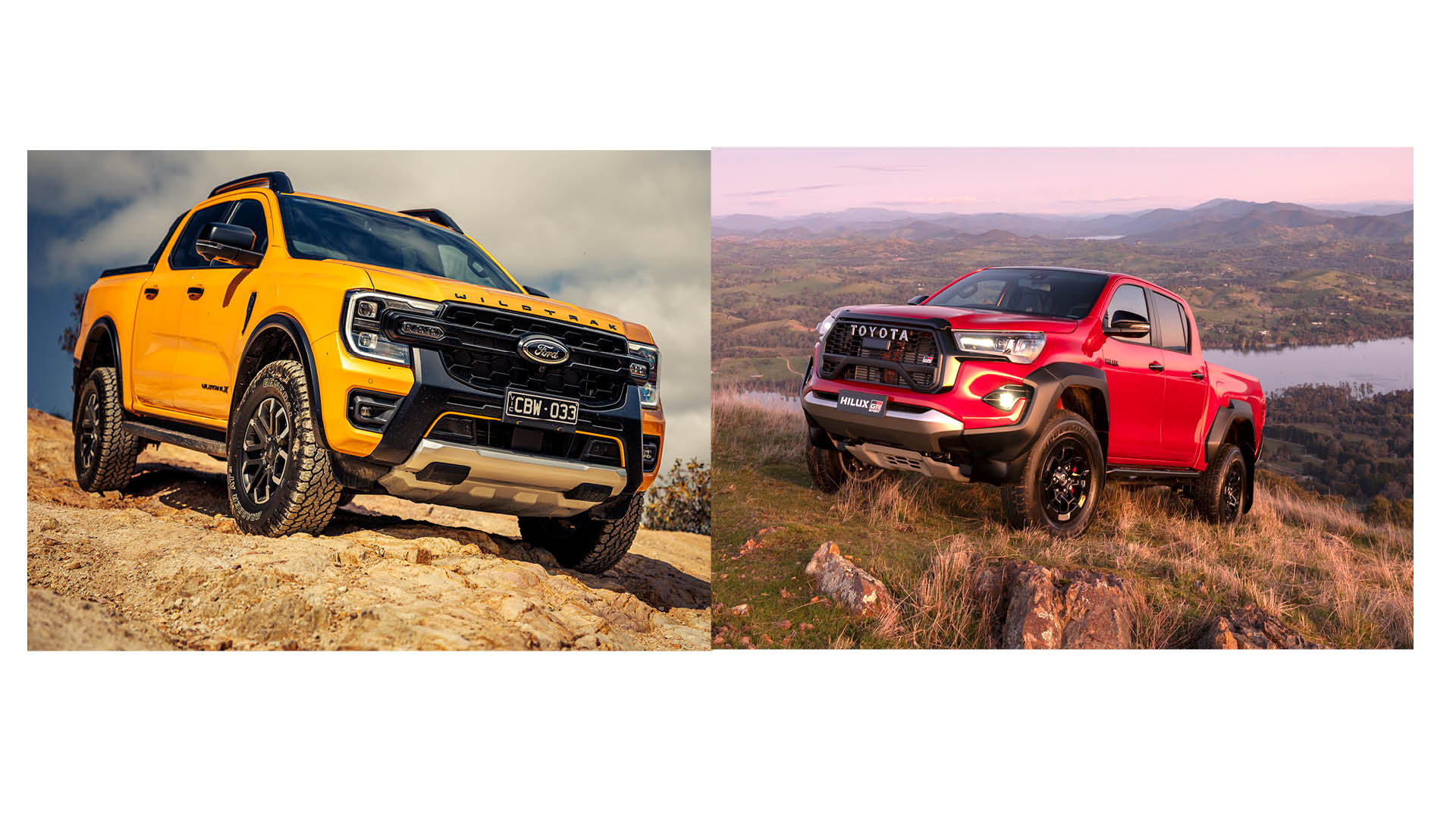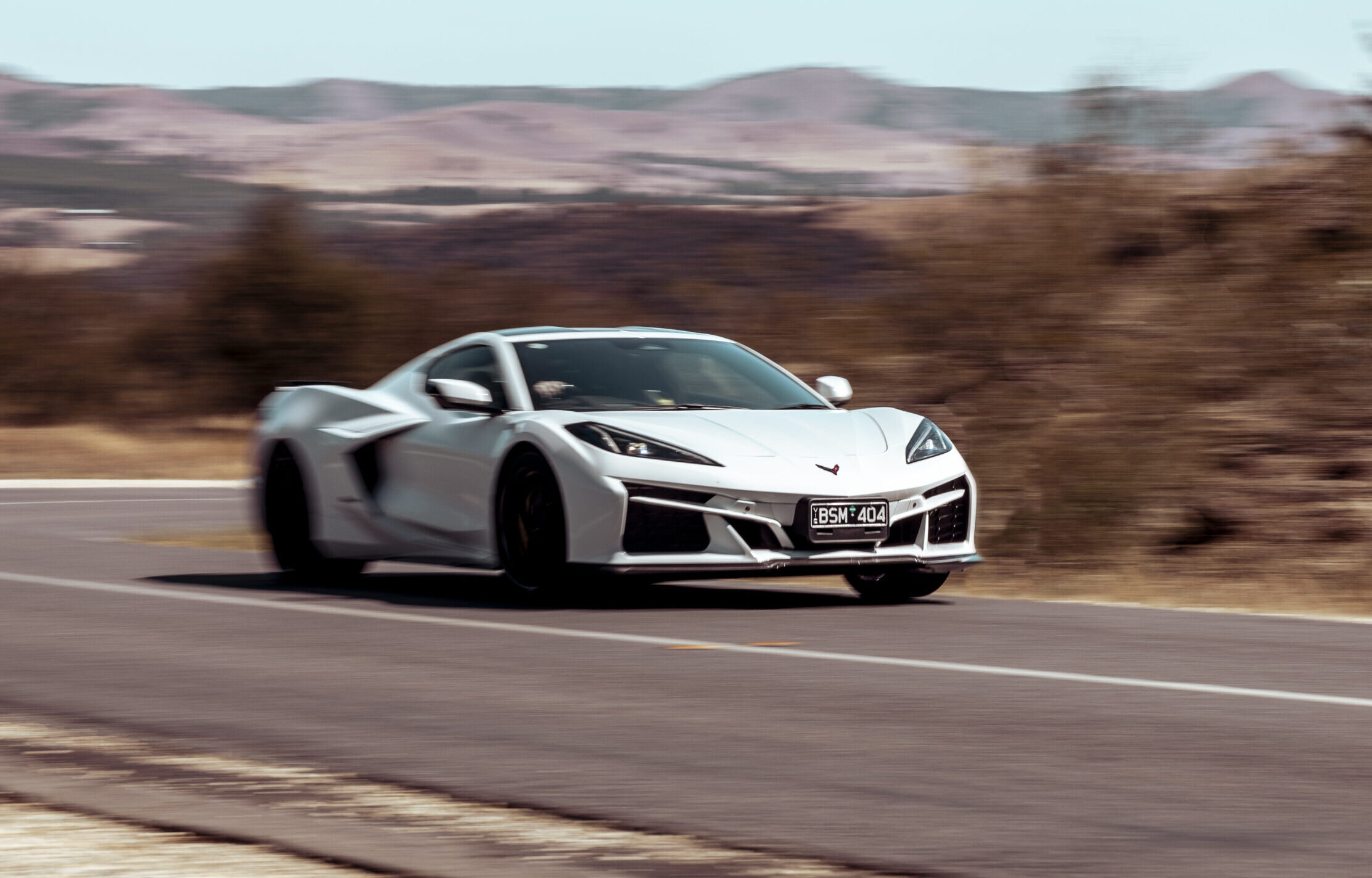Score breakdown
Things we like
- Loaded with tech in a high-quality cabin
- Terrific sporting drive qualities
- Super-fast charging available
- EV6 Air is priced to benefit from best EV rebates
Not so much
- Boot could stand to be bigger
- No advanced app connectivity
- All EVs still struggle with long-distance, high-speed cruising
Kia has finally broken through what might be its final significant ‘barrier’.
No longer a slave to the dismissive, demeaning concept of ‘cheap and cheerful’, Kia has been offering segment-favourite models for sometime now – but in the EV6, it has an offering that challenges the very best the market has to offer.
Making its local sales debut this month, albeit in numbers that can only be described as frustrating (for buyers and Kia Australia alike), the EV6 follows the Niro as the brand’s second all-electric offering – when a number of better-established, better-regarded brands have yet to launch their first.
UPDATE, January 2023: Kia EV6 GT driven in Australia
“This isn’t even my final form”, chuckled the 239kW & 605Nm EV6 GT-Line last year. Now we understand… see our first drive review of the flagship EV6 GT, including a track test, at the link below.
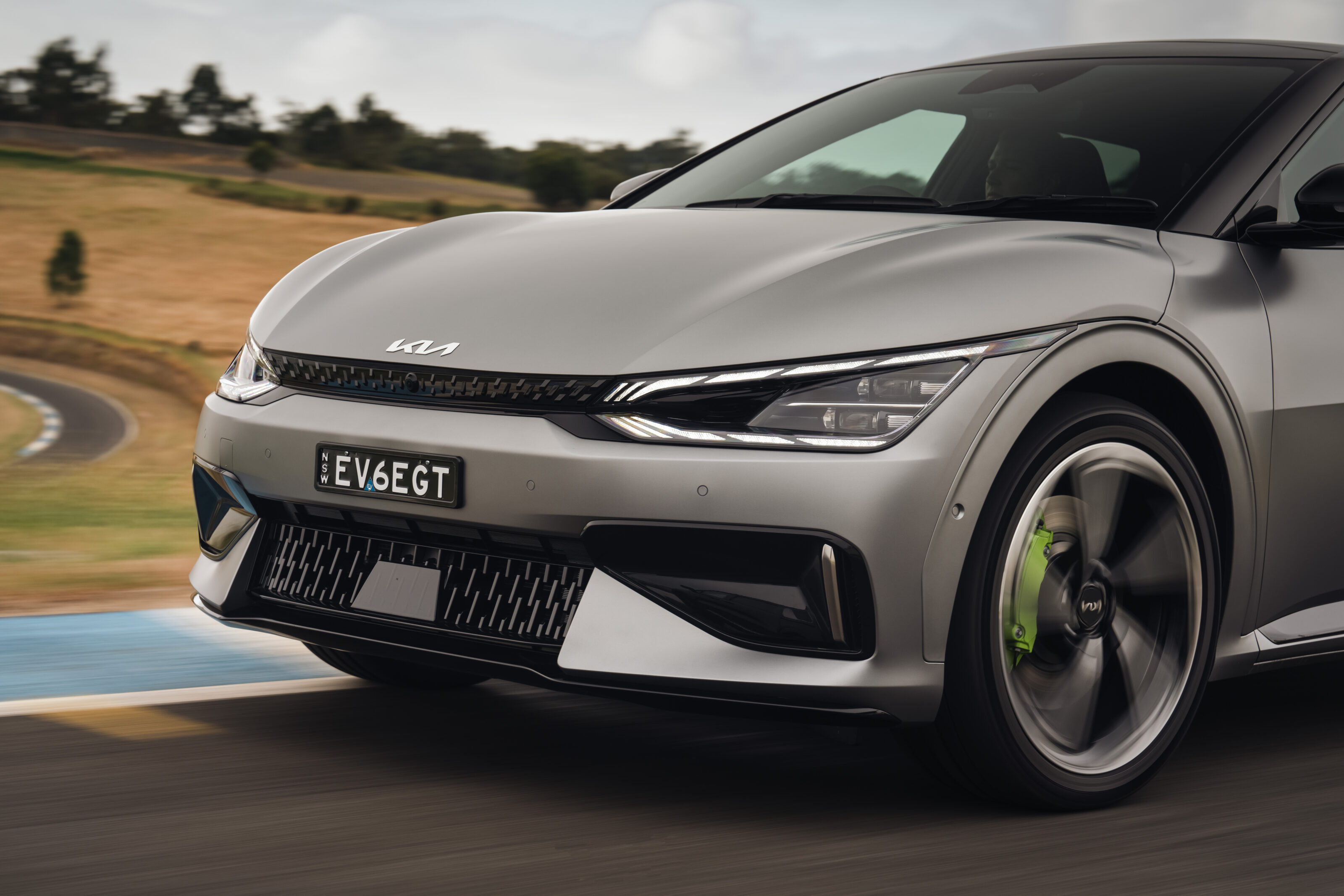
Story continues…
The EV6 arrives in a compelling configuration, offering more range, more features, more localisation and a cheaper entry price than its platform mate, Hyundai’s fast-selling (and similarly limited) Ioniq 5 EV – although buyers drawn to retrofuturistic styling might prefer the Hyundai’s look over the go-fast looks of the Kia.
Cheaper? As Andy Enright detailed in our recent 2022 Kia EV6 Price and Features story, where Hyundai Australia went with a high-specification offering that saw pricing start from $71,900, the EV6 is available in three configurations: the $67,990 EV6 Air RWD, the $74,990 GT-Line RWD and the $82,990 GT-Line AWD.
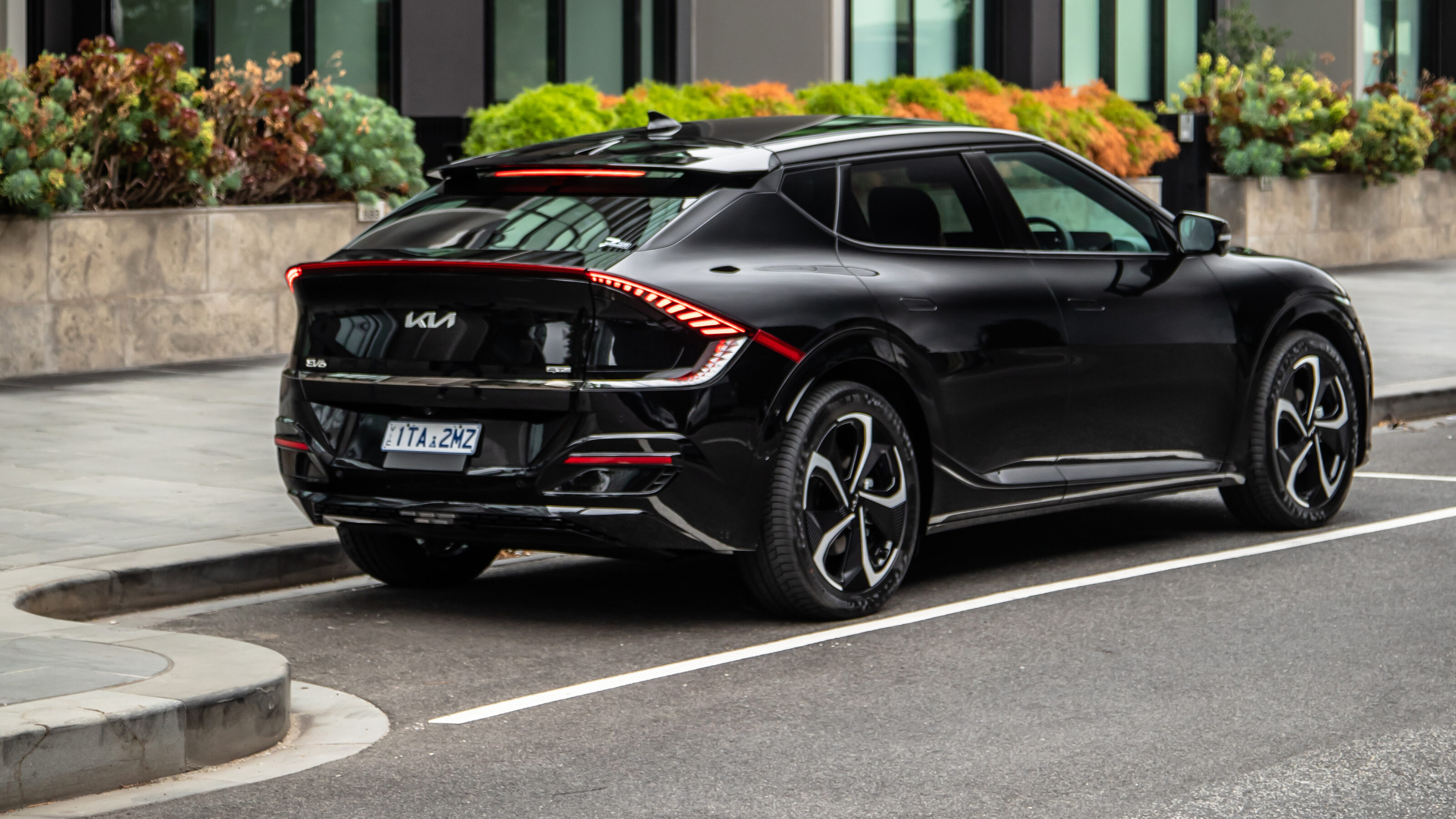
Cheap and cheerful it is not, but in its ‘Air’ form, the EV6 neatly undercuts its stablemate without skimping on the important pieces. Even at that entry level, the EV6 Air is equipped with a big 77.4kWh battery pack that promises a driving range of up to 528 kilometres, compared to the base Ioniq 5’s slightly smaller 72.6kWh pack and shorter 451km range.
Australia’s EV6 packs a couple of other tricks the Ioniq 5 doesn’t: ‘Vehicle to Load’ appliance charging in the cabin (the Hyundai does only external in its local guise and the EV6 Air misses out on external), and a ride-and-handling tune overseen by maestro Graeme Gambold. (Watch Jez Spinks’s EV6 interview with Graeme right here.)
You can look forward to a full EV6 v Ioniq 5 tech and driving comparison in the weeks ahead, but for now, Kia’s new electric SUV gets the spotlight.
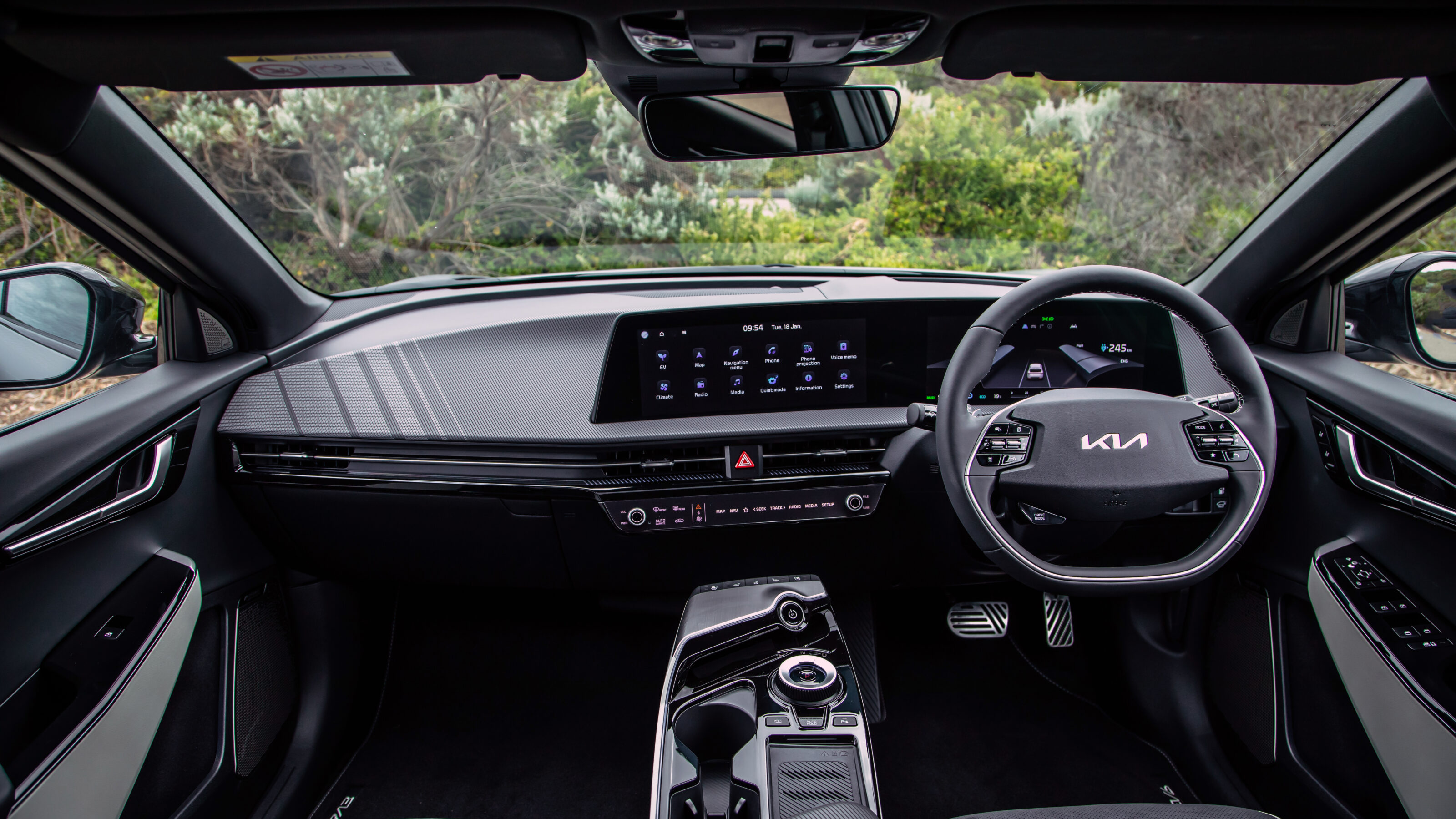
Interior features, comfort and space
Tech and safety
Inside, the 2022 Kia EV6 presents a feeling both familiar and a little more advanced, more futuristic than any Kia you’ve driven up to now.
If you’ve sat in the new Sorento or Sportage SUVs, the EV6’s giant dash displays won’t be new to you – although it’s the Sportage that has the most in common here, with both models running their twin 12.3-inch displays in one continuous panel from the dash centre to behind the steering wheel. Very 2018 Mercedes-Benz S-Class – it trickles down quickly, these days.
Perhaps the most welcome thing here for tech-heads is that those big displays are standard across the range; good news when you consider entry-level models often get smaller screens or fewer of them.
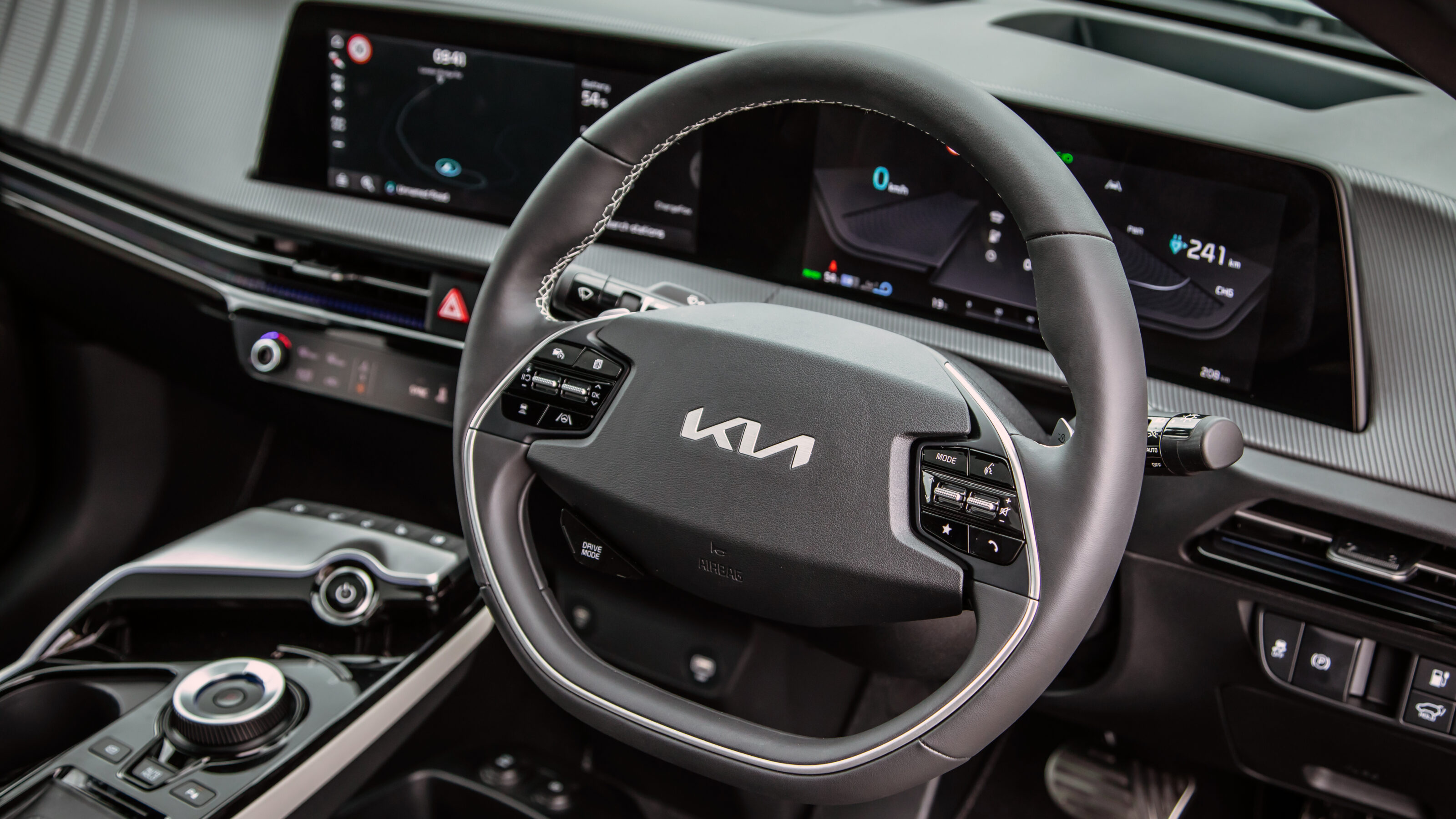
The EV6 also features the same clever dual-function control panel that flips between audio and air-conditioning buttons as needed, although it does mean you miss out on physical switches for these controls. You can, however, define one of those two control sets as the default, meaning it will switch back to that preference automatically after you’re done using the alternate set.
The Air is overall well-equipped, with the long-range battery pack, 19-inch alloy wheels, LED driving lights and tail lights, flush door handles for slippery aero, an acoustic laminated windscreen, paddle-shifted brake regeneration, V2L (vehicle-to-load power ports), wireless phone charging (albeit with only wired Apple Carplay and Android Auto in all models), and dual-zone climate control among the highlights.
Safety wants for just about nothing, with the following all standard: Automatic emergency braking (AEB) with junction turning, lane-keep assist with lane-following assist, blind-spot detection, rear cross traffic alert, centre-side airbag, multi-collision braking, intelligent speed limit assist, tyre pressure monitoring system, front and rear parking sensors, electronic parking brake, temporary tyre mobility kit and smart cruise control.
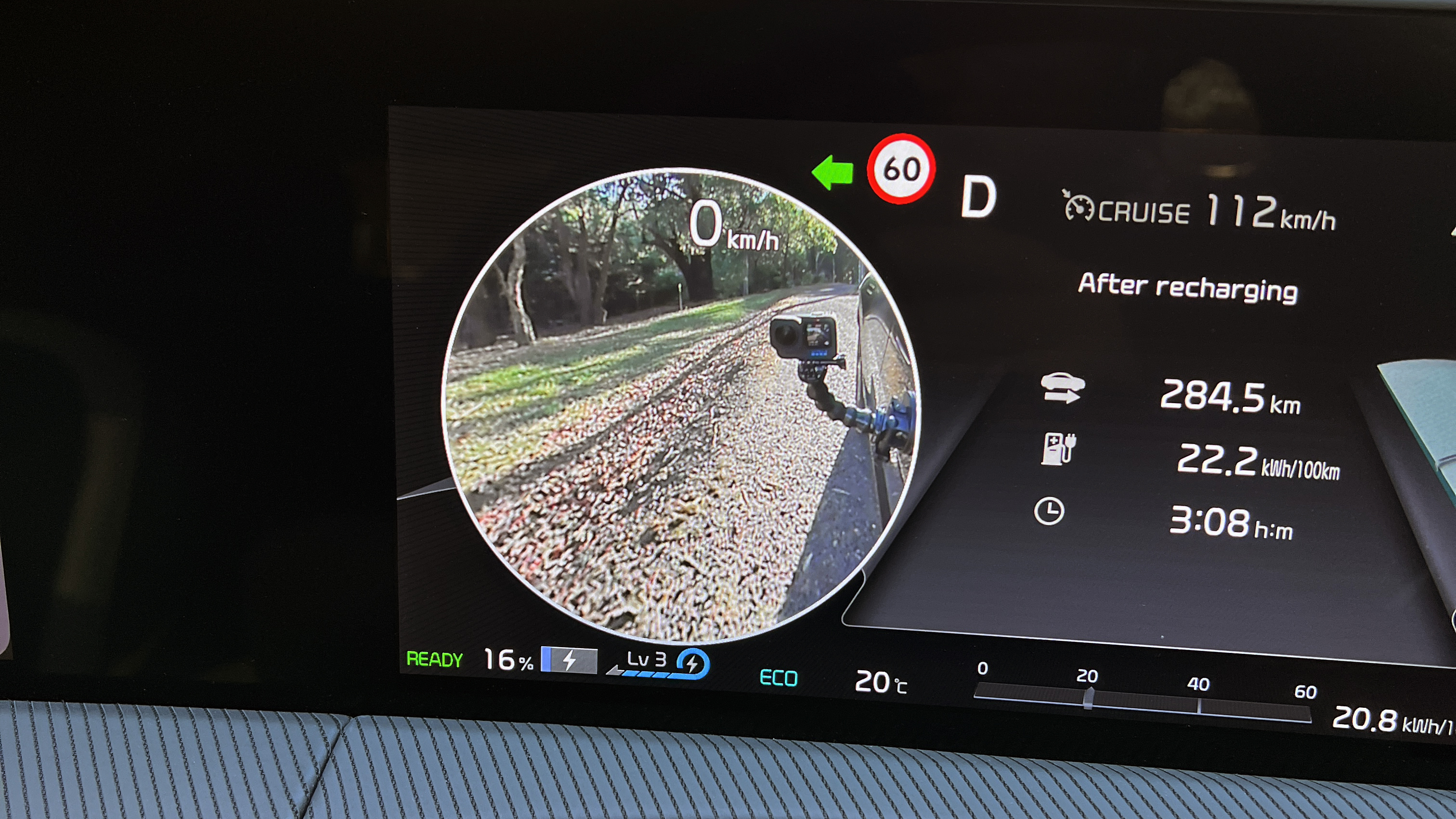
Stepping up to the GT-Line models adds a few features and materials you won’t get in the Air. Those include 20-inch alloys, acoustic laminated front door glass, auto-folding door handles, ‘active sound’ design, an augmented-reality head-up display, 14-speak sound, powered driver’s seat with memory, heated and ventilated front seats, heated steering wheel, remote smart park assist, a smart powered tailgate, and a suede treatment to the seats (all models also have artificial leather instead of genuine leather).
The GT-Line AWD also gets a big wide sunroof, and both GT-Line models upgrade their safety offering with blind-spot view monitor (rear-facing side-mounted cameras activate when indicating), a powered child lock and 3D surround-view camera.
Get the full equipment list in our pricing and features story here.
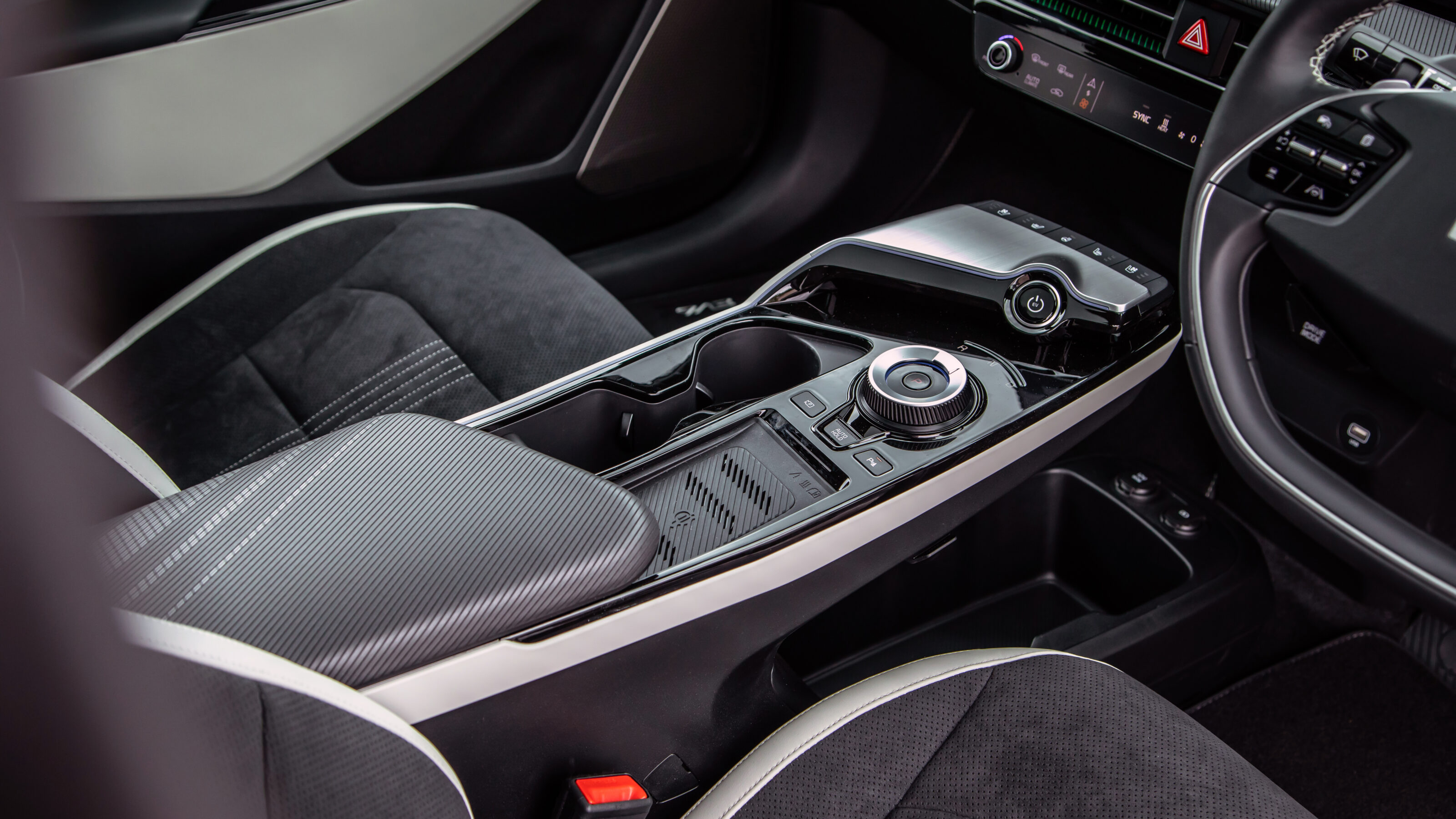
Comfort and space
Generous. Like the Ioniq 5, the EV6 looks deceptively small, until you move closer and realise it occupies a somewhat confounding space between medium and large SUV classes. Indeed, Kia is marketing it as the latter, and the numbers are there to back it up.
The EV6 rides on a huge 2900mm wheelbase and measures 4695mm long – giving it a longer footprint than the new Sorento’s 2815mm, but a shorter overall length than the Sorento’s 4810mm. It’s still longer than the Sportage, though, which measures 4660mm (and rides on a 2755mm wheelbase). The EV6’s 1550mm height and 1890mm width compares to 1695mm and 1900mm respectively in the Sorento.
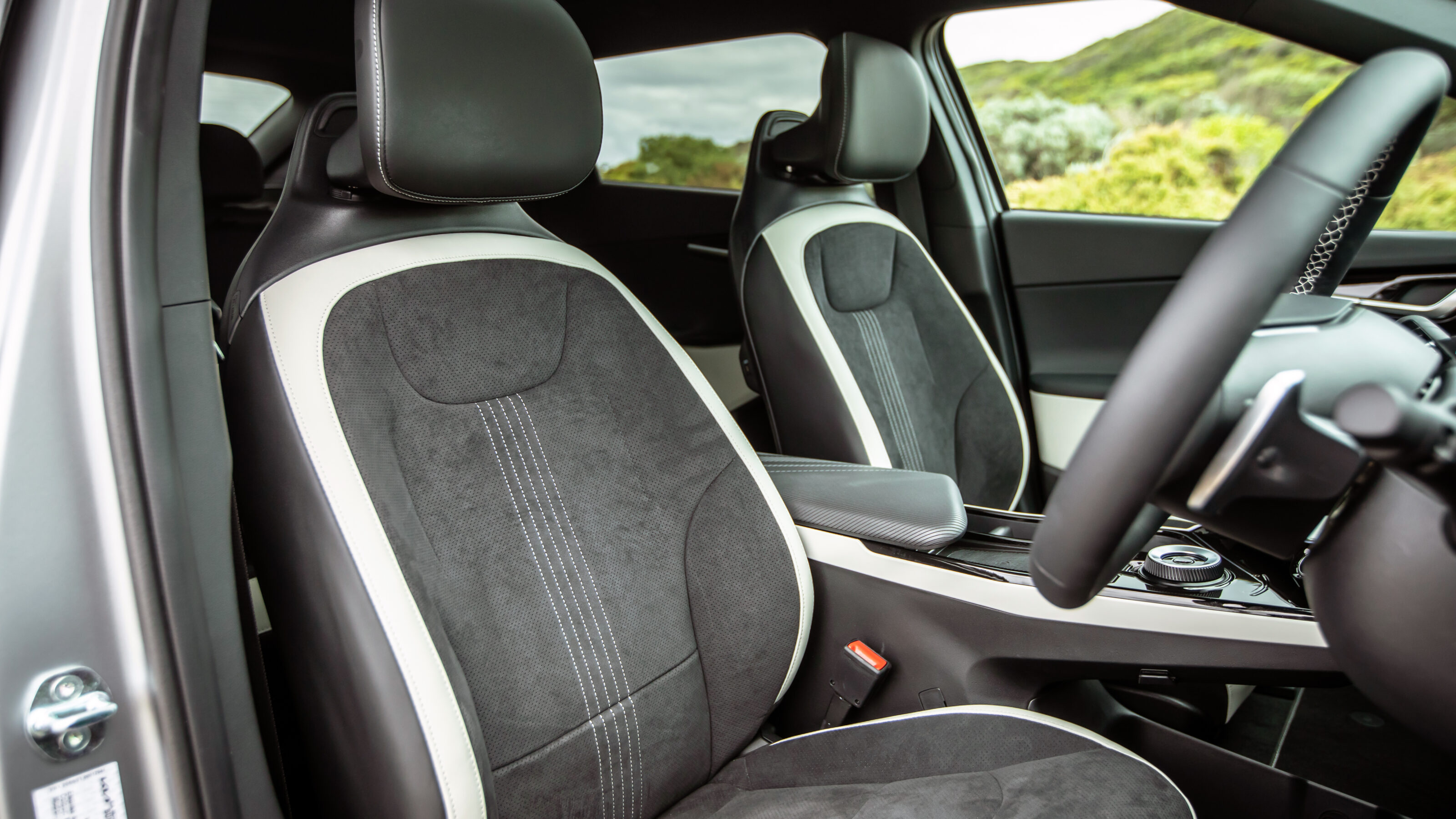
Kia wants you to think of the incoming Tesla Model Y as a key rival. The American EV – which is selling in huge numbers over there – has a wheelbase shorter by 10mm, but it’s 55mm longer overall, 31mm wider and 74mm taller than the EV6.
The glass-roofed Model Y’s greater height gives it 64mm more headroom in the front even without the EV6 AWD’s glass sunroof (figures with the sunroof aren’t offered), but the EV6 wins in the rear with 29mm more space for your noggin.
The EV6 also wins on leg room and shoulder room in both rows, offering 24mm and 9mm more leg room respectively, and 30mm and 36mm more shoulder room respectively. At five-foot-nine, this writer did not struggle for space at either end or corner of the cabin.
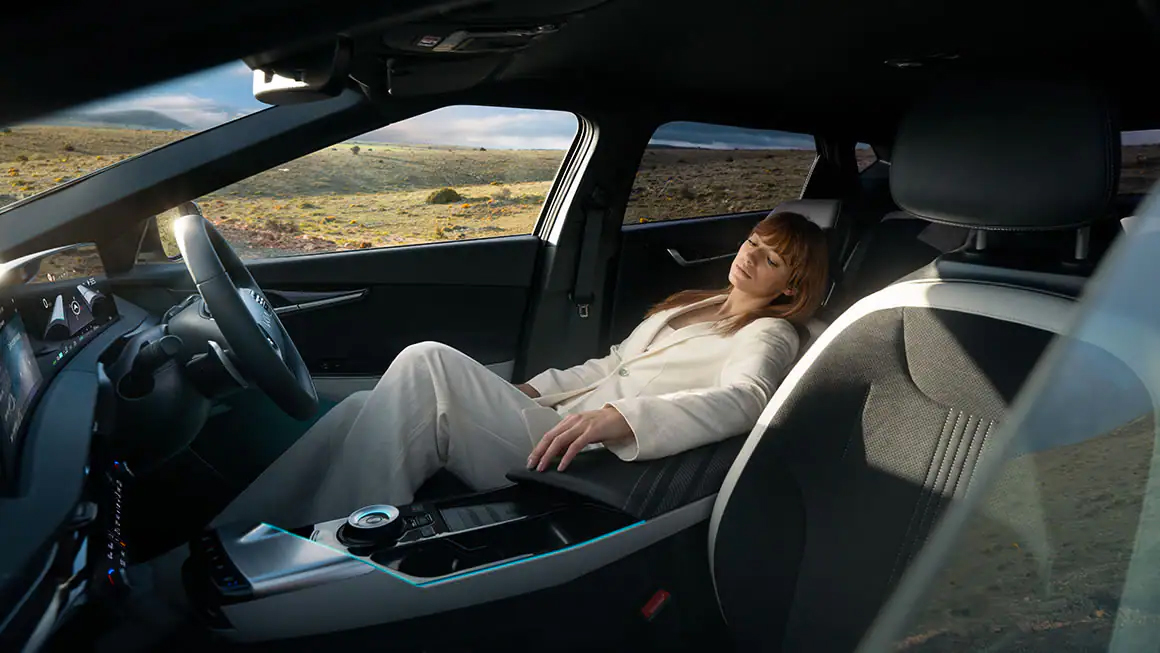
(The EV6 can’t really compete with the Model Y on dedicated charging infrastructure or mobile app connectivity, but that’s a different story.)
Comfort in both the front and rear of the EV6 is excellent, with good bolstering and thigh support up front. Indeed, I drove the EV6 from Canberra to Melbourne at the end of the launch event, and there was no hint of aches or general discomfort the entire way.
The front ‘Premium Relaxation Seats’ in GT-Line models can recline to an almost flat position for resting at charge stops, and the rear seats also recline to a more conventional angle for a decent nap as desired.
Insulation is also good inside. Between acoustic lamination to the windows and sound-absorbing trim in the body, noise on the road is kept fairly well checked. In its own testing, Kia says the EV6’s road noise was measured at 63dBA – compared to 63 for the Jaguar I-Pace and 67 for the Tesla Model 3.
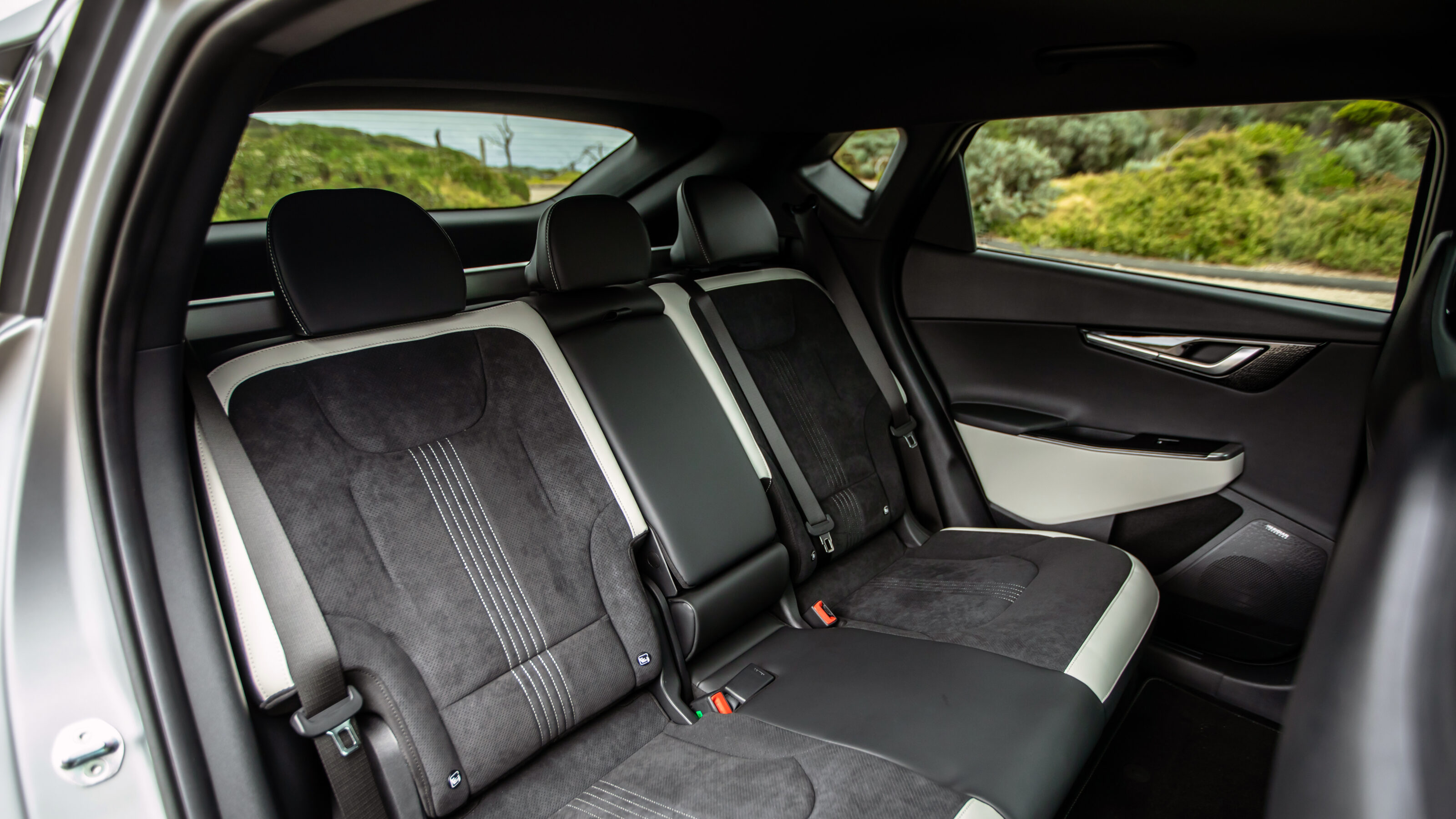
Storage
Storage up front is made up of large cup holders, a generous centre armrest cubby and a neat little notch between them for keys or a tin of mints, while the ‘floating’ design to the centre console means there’s also a large tray beneath – I found this a handy way to keep my bulky camera bag close at hand. The glove box is a good size (albeit a more conventional glovebox than the Ioniq 5’s clever pull-out drawer), while the door pockets and bottle holders are adequate but still fairly narrow.
In the rear, there’s big integrated coat hangers and expanding hard-shell map pockets in the front seatbacks, along with bottle holders in the doors, and cup holders in the fold-down centre armrest.
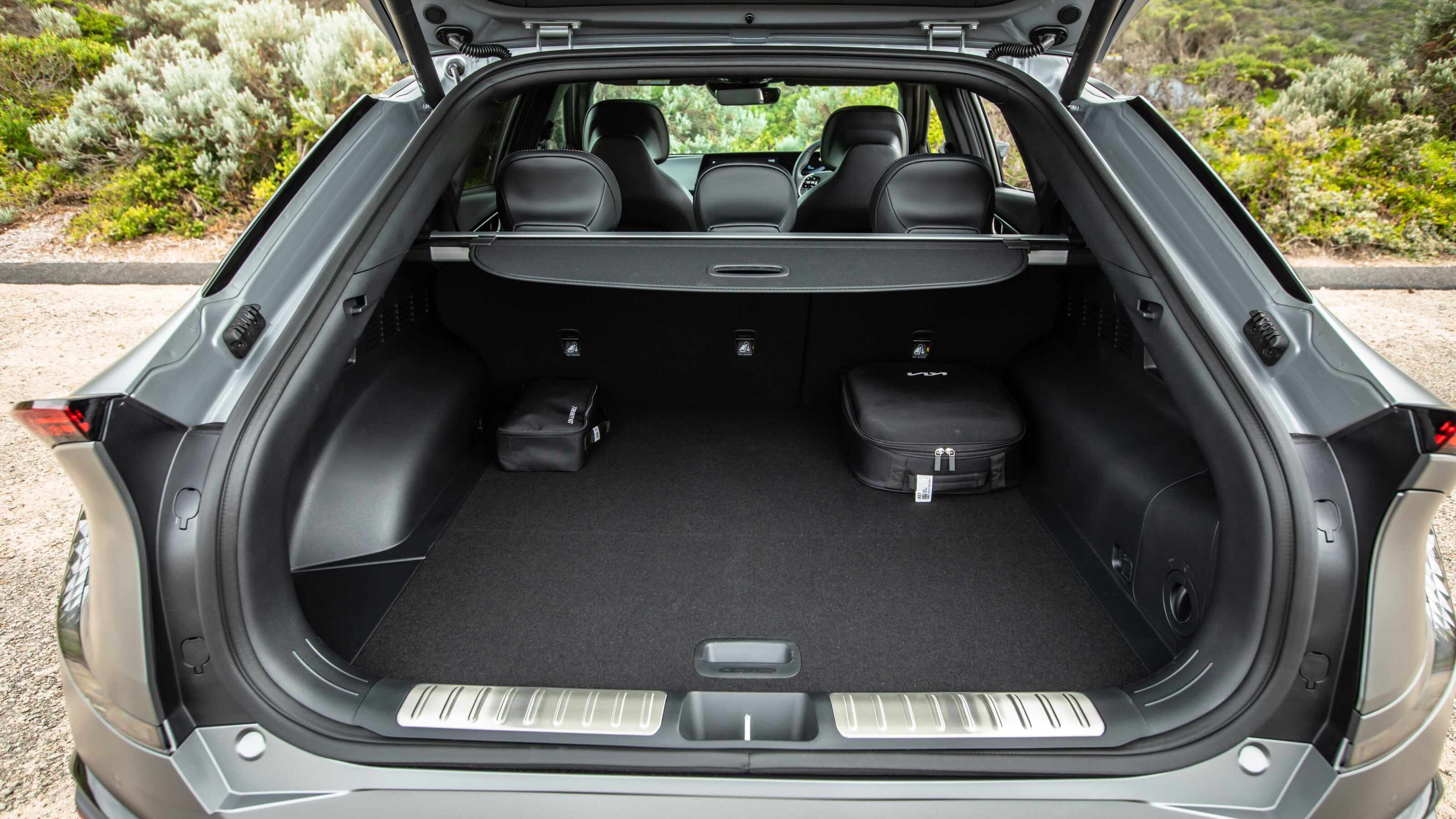
There’s a generous 520 litres of seats-up storage space in the rear (seats-down figures still to come), although it’s a shallow design overall and the tapered roofline limits the dimensions of bigger items you might like to transport – although Kia smartly notes you’ll fit three sets of golf bags, or three large luggage cases, in the rear.
All models have a front storage space (a ‘frunk’, or locally a ‘froot’ if you prefer), with a useful 52 litres in RWD models and a barely usable 20 litres in AWD models – good for the charging cables or some soggy shoes, I suppose.
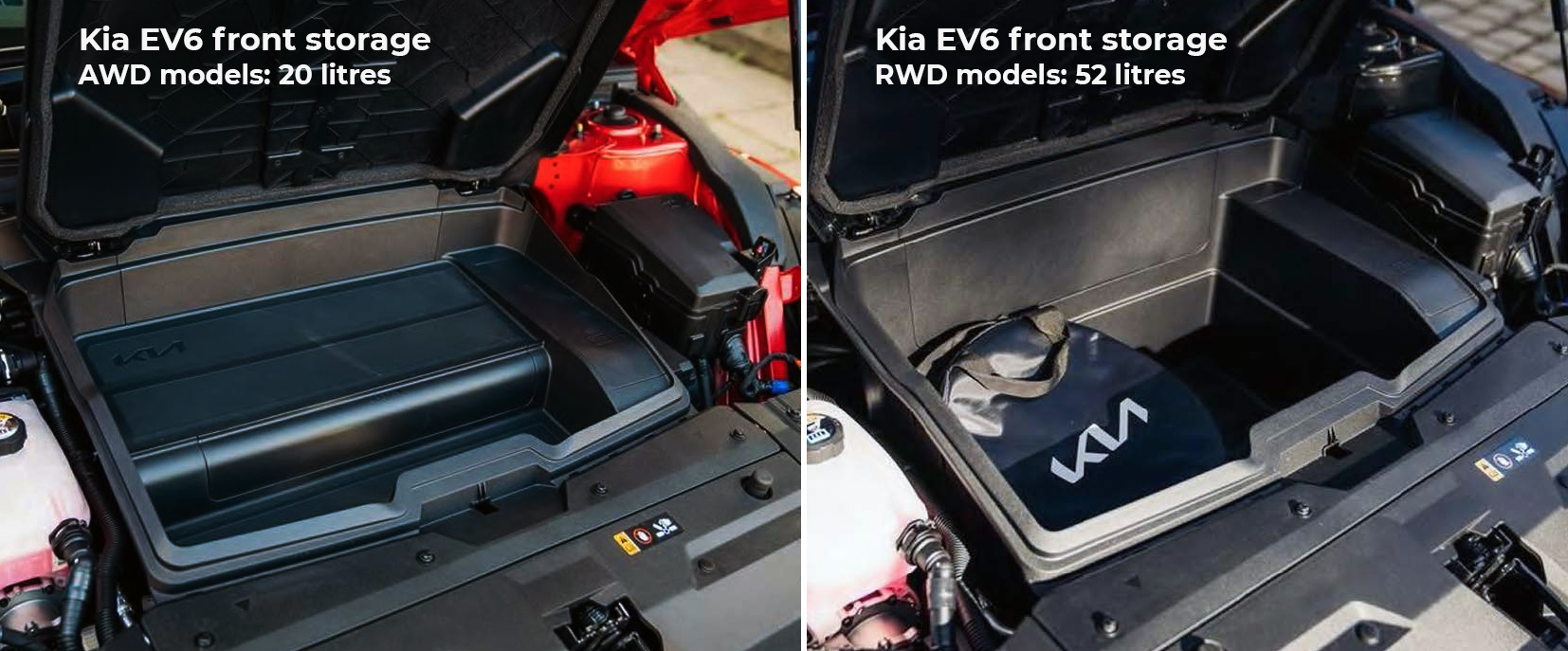
2022 Kia EV6 on the road
I’m speculating here, but if the EV6’s team were tasked with developing an electric take on the big, powerful and fast Stinger, this is a fairly convincing tribute.
Like the Stinger, with its 182kW/353Nm 2.0-litre turbo four and 274kW/510Nm 3.3-litre turbo six engines, the EV6 even comes with two sets of outputs: although it adds a second motor and all-wheel drive to get its bigger numbers, while the Stinger is exclusively RWD in Australia.
In both RWD versions of the EV6 – the Air and the entry GT-Line configuration – outputs are listed at 168kW and 350Nm. These aren’t flattering numbers for any big car, let alone a 2000kg SUV whose battery alone weighs 470kg. Still, the rapid onset of torque promised with electric motors means the EV6 RWD can still hit 100km/h in 7.3 seconds – not hot, but not exactly depressing. In the seat, it should provide a satisfying shove for most buyers.
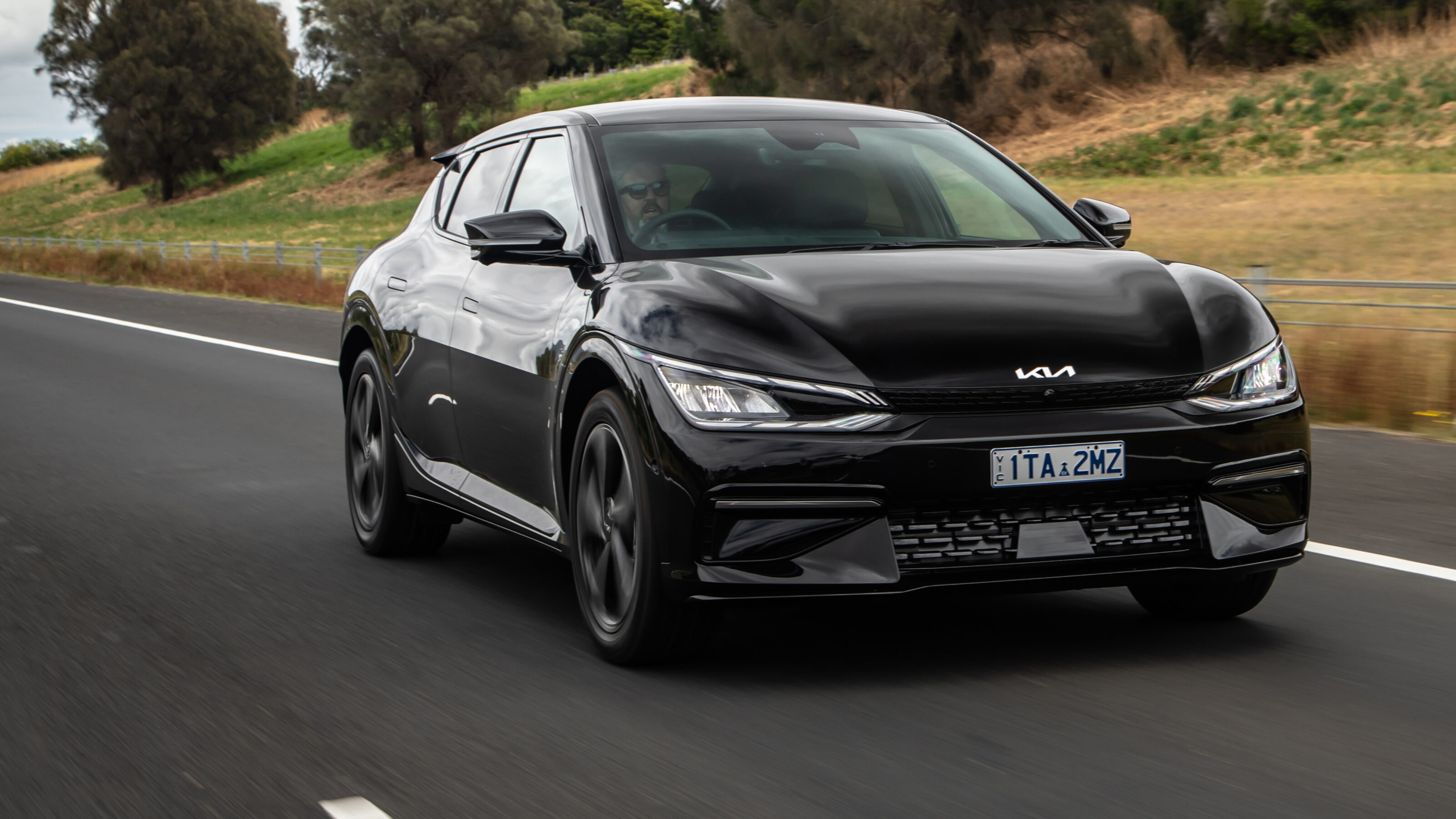
It’s in AWD form that the EV6 gets more of the ‘oof’-inspiring thrust that (expensive) EVs have become known for. With two motors at its disposal, the GT-Line AWD gets a meaner 239kW and 605Nm, promising a properly quick 5.2 seconds to 100km/h. Yes, a number of performance-oriented EVs outdo this handily, but Kia has one of those coming later this year: the 430kW, 740Nm EV6 eGT – it’ll cost closer to $100,000, but it’ll also blast you to 100km/h in a very super 3.5 seconds.
Once that thrill wears off, the EV6’s performance credentials are underscored with a very well-engineered suspension package that neatly complements the sometimes counterintuitive advantages of brake regeneration and the low centre of gravity delivered by a bloody big battery under the floor.
As with other Kia models sold here, the EV6 benefits from a local ride-and-handling program managed by Graeme Gambold and the team at Gambold Engineering Services. Gambold honed his craft through tweaking Toyotas at the Nurburgring, and he’s a talented rally driver too.
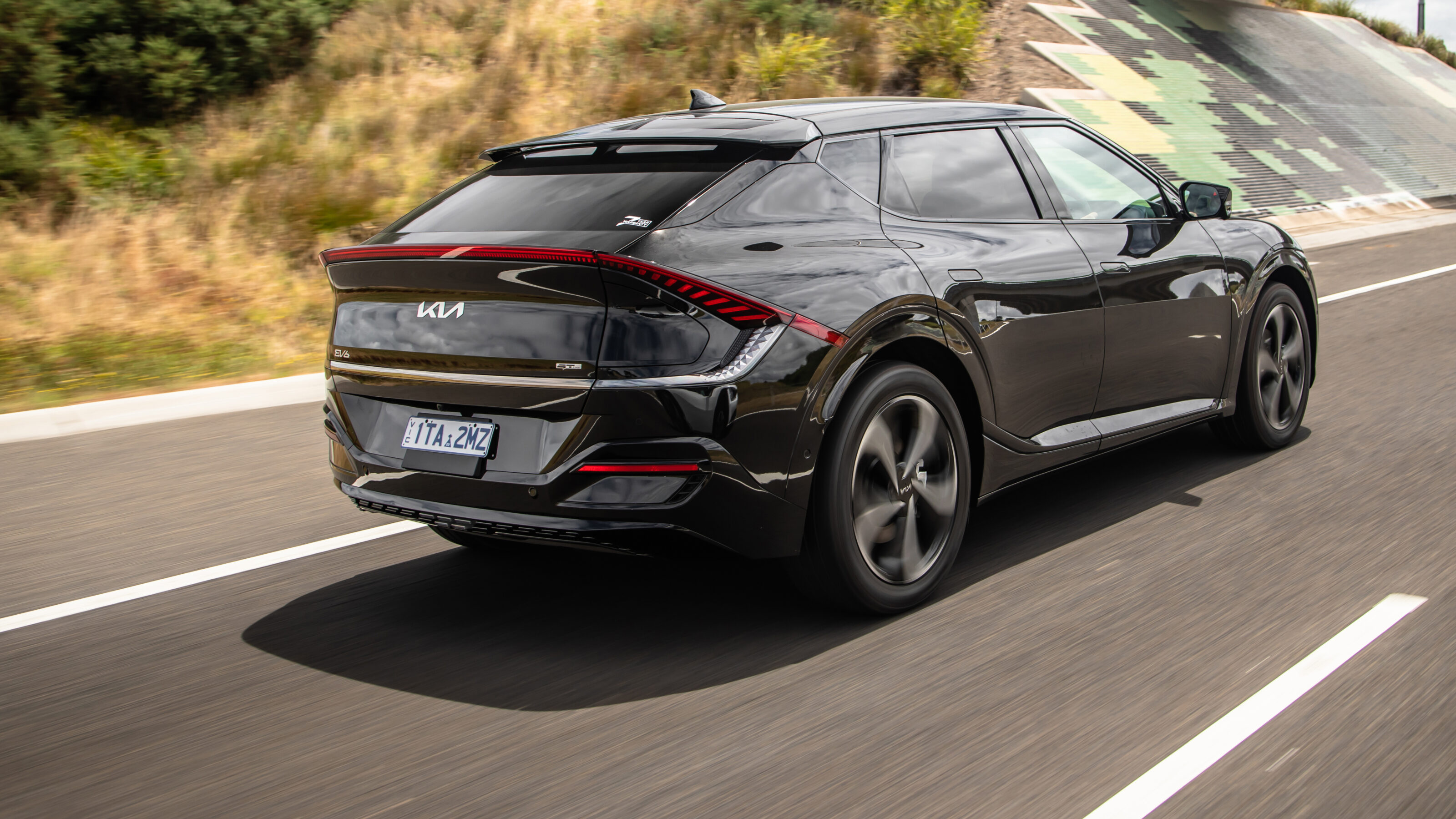
Working in collaboration with both Kia Australia and the company’s global headquarters in Korea, Gambold has specifically configured the EV6’s ZF Sachs’ frequency-sensitive Selective Damping Control technology – up to now seen in only Maserati and Mercedes-AMG models. Decent company to be in.
In its Australian form, the Sachs system is tuned to provide a balanced experience between the soft ride preferred in Korea and the much firmer ride specified for European models. It’s an arrangement suited well to the huge variety of surface types and conditions, and mixed quality, of Australian roads.
I spent most of my time at the event in GT-Line models, aided by Continental rubber and, in top-spec form, all-wheel-drive pull.
All variants of the EV6 come with a sport mode to make acceleration more rapid, and a sport brake mode too, optimising response as desired. Combined with the paddle-controlled brake regen that can trick you into feeling like you’re gearing down for the next corner, Kia’s big, heavy and fast SUV is… really quite fun.
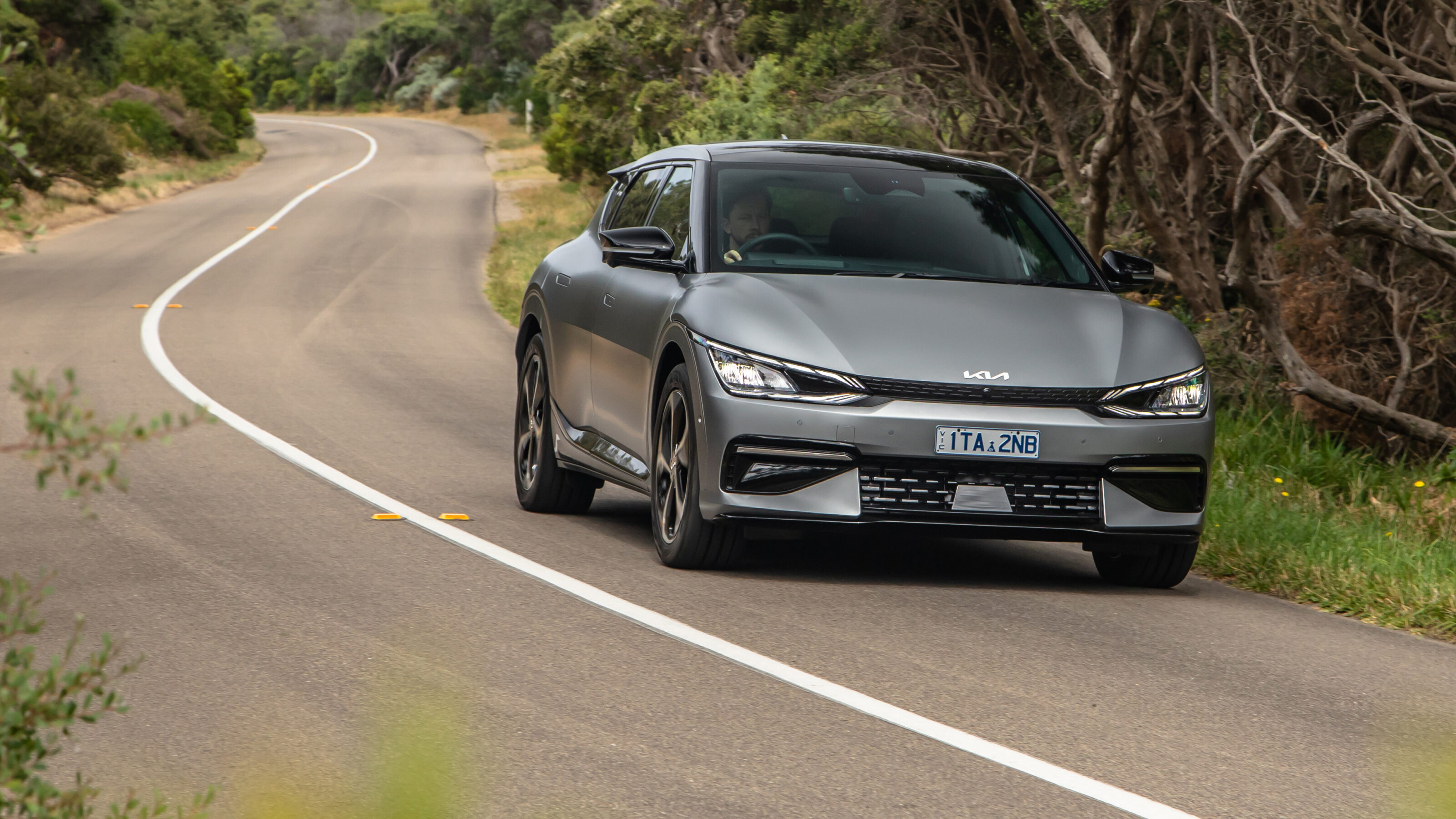
Covering around 250 kilometres of driving at the Australian media launch, taking in urban and country roads around Canberra – many of them narrow and broken yet signposted at 100km/h, like many rural Australian roads – the EV6 consistently proved itself a comfortable family offering that neatly soaks up irregularities and undulations in the road surface without throwing any rude shocks or surprises at the cabin ambience. It’s a firmer ride than in the Ioniq 5, no question, but it’s more planted and it just feels right.
Pushed harder, the EV6 shows its colours as a properly surprising impression of a sports car, tucking into corners far more effectively than seems possible. We missed out on a full local steering tune, thanks to COVID, but the response to input is clear and linear, changing direction neatly – and the instant torque is there to help transfer weight quickly.
It’s not working miracles or bending physics, but it’s clear the car’s smart systems and tuning are working together to manipulate a few different rules of motion.
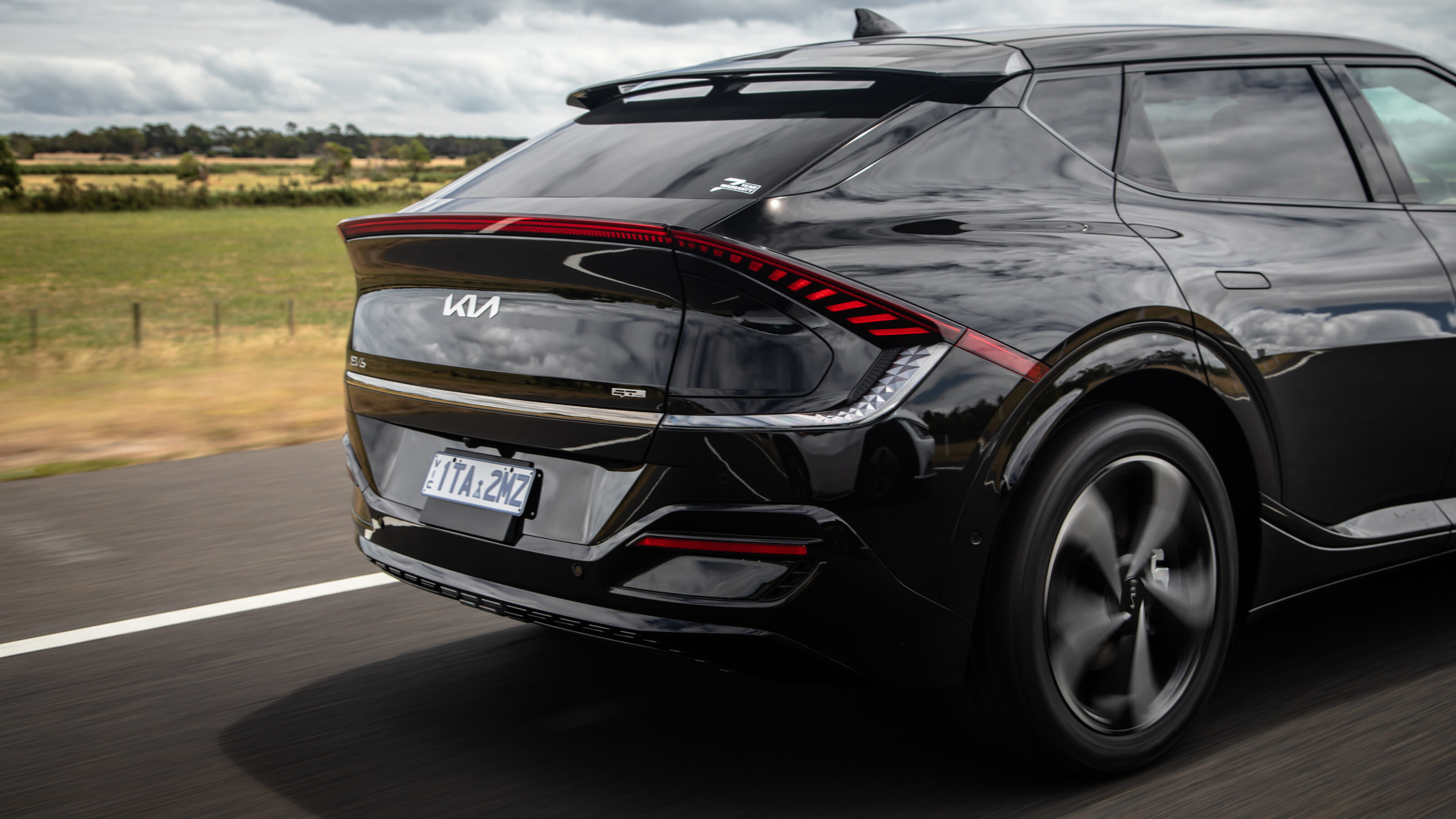
What about range and charging?
The basics: the EV6 offers up to 800V ultra-fast charging capability which, on a 350kW ultra-rapid charger, enables the battery’s charge to be boosted from 10 percent to 80 per cent in just 18 minutes. On a 50kW charger, you’ll get from 10 to 80 per cent in one hour and 13 minutes.
Buyers in Australia may still baulk at the idea of EVs, with range anxiety a tough monkey to shake – but even when you squeeze the EV6 with some spirited driving or long highway trips, where electric motors are less efficient, range claims like 528 kilometres (Air RWD), 508km (GT-Line RWD) and 484km (GT-Line AWD) are big buffers to work with, supported by a rapidly growing network of fast chargers along Australia’s most popular interstate highways – and more popping up all around.
Driving from Canberra to Melbourne, I had the option of super-fast 350kW chargers at Gundagai, Barnawartha, Euroa… all within very comfortable intervals along the way, all promising a 10-to-80% battery charge in the EV6 in just 18 minutes. Stretch your legs, hit the loo, grab a burger (I don’t even regret that Whopper), post some roadtrip snaps to Instagram and voila, you’re on your way again.
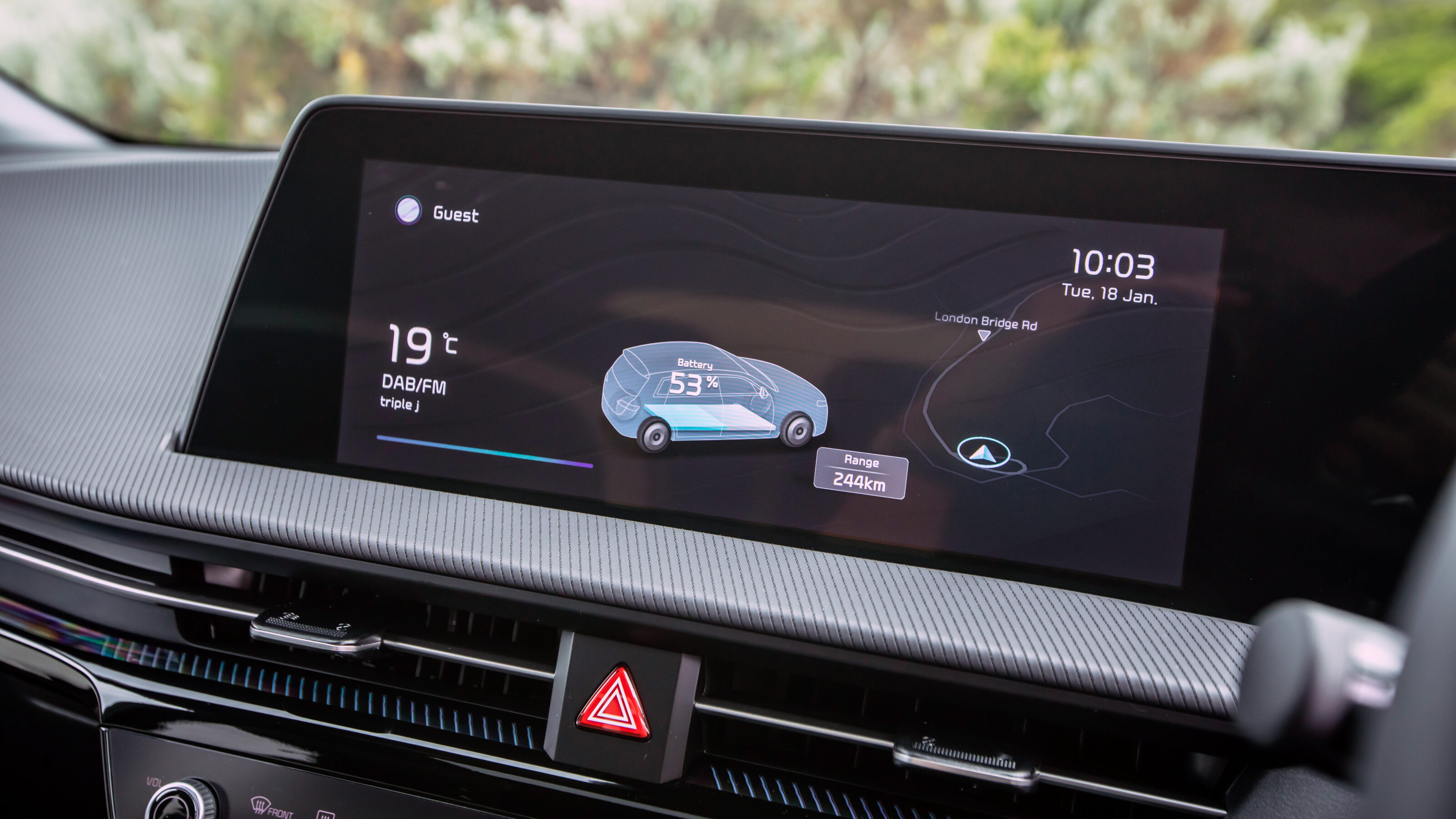
Here are the facts of my own driving in the EV6: Bound for Melbourne, I skipped Gundagai and powered on to Barnawartha at 110km/h the entire way, 350km out of Canberra.
With 508km indicated when I left Canberra, I arrived at the 368kW charger with 50km indicated – so I lost a bloody big chunk of range, thanks to a high cruising speed with no brake regeneration available, significant uphill stretches of driving, and a lot of roadside stops (I like to take a few minutes at most stops to stretch my legs, check messages, and all that). But I made it comfortably, despite fairly unfavourable circumstances.
Look. Driving EVs over long distances requires a recalibration in the minds of buyers, that’s a fact. Re-learning what to expect from range calculations, and understanding that highway driving efficiency is pretty much the opposite of what you grew up expecting from internal-combustion engines – but the infrastructure to support those drives is only growing.
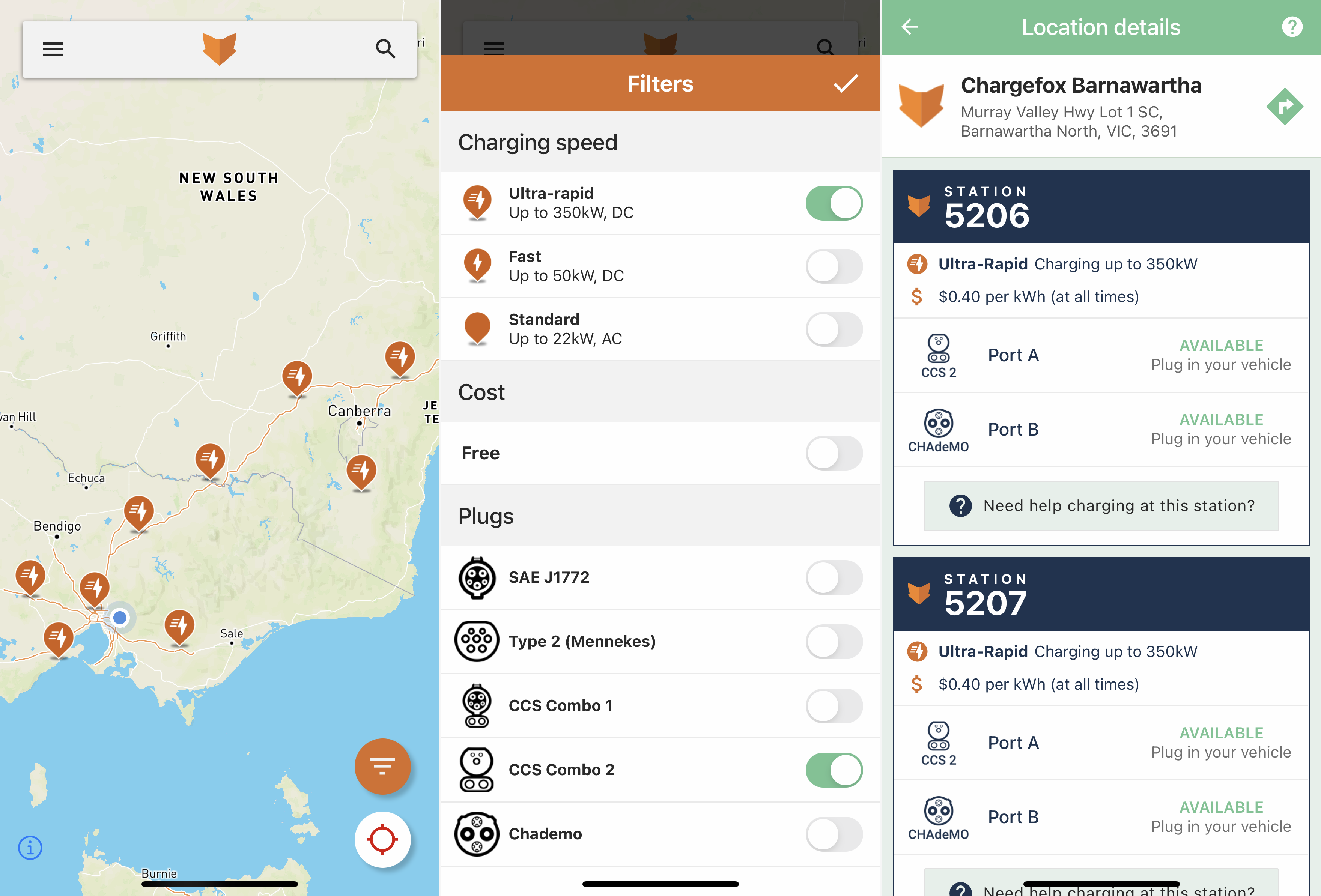
Buyers looking to do regular road trips don’t have much to fear if they’re sticking to the big roads between our cities and best-loved tourist destinations, but, hey – statistics say Australian families have ‘2.1’ cars. If you’re that worried – say you’ve got some heavy towing to do (up to 1600kg braked), or you know you’ll be taking some long drives down some less-equipped roads – it’d be fair and smart for you to take a petrol or diesel option.
For the rest of us, who spend most of the year in cities and limit our road trips to the popular destinations – and that’s most of us – the EV6 is a very, very good thing.
VERDICT
The EV6, Kia Australia’s second electric vehicle, is an exciting package. A comfortable drive – and a properly fun drive at that – with quality materials, excellent fit-and-finish inside and out, loads of tech and safety, and room for the family.
It isn’t the ‘affordable’ family car many are waiting for – the $40,000 medium or large electric SUV with 500km-plus range is still some years away – but for those with the budget and an appreciation for the potential savings, the EV6 is well worth considering.
I only wish they could get more of them, but this is really still only the early years of EVs in Australia, and there’s plenty to look forward to.
Score breakdown
Things we like
- Loaded with tech in a high-quality cabin
- Terrific sporting drive qualities
- Super-fast charging available
- EV6 Air is priced to benefit from best EV rebates
Not so much
- Boot could stand to be bigger
- No advanced app connectivity
- All EVs still struggle with long-distance, high-speed cruising



